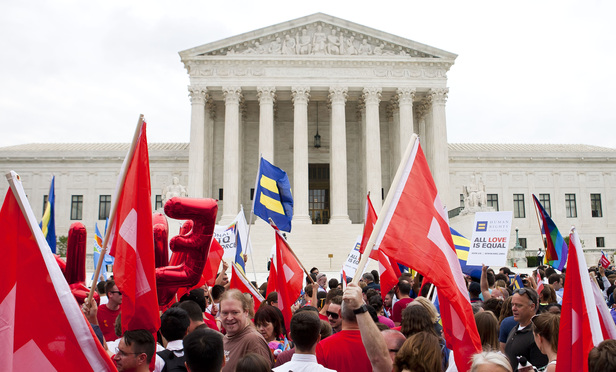In the Obergefell v. Hodges opinion issued last summer, the United States Supreme Court held that same-sex couples may no longer be denied the “fundamental” right to marry and declared invalid State laws that exclude same-sex couples from civil marriage on the “same terms and conditions” as opposite-sex couples.
This historic opinion has significantly changed the legal landscape in Texas where, prior to Obergefell, Article 1 §32 of the Texas Constitution and Family Code §6.204 specifically denied same-sex couples the right to marry, declared as void any same-sex marriage or civil union, and specifically prohibited the state or any of its agencies or political subdivisions from giving effect to any asserted right or claim to legal protection, benefit or responsibility if it resulted from a same-sex marriage or civil union. Immediately following Obergefell, the U.S. Court of Appeals for the Fifth Circuit in DeLeon v. Abbott declared Article 1 §32 of the Texas Constitution and Texas Family Code §6.204 unconstitutional.
This content has been archived. It is available through our partners, LexisNexis® and Bloomberg Law.
To view this content, please continue to their sites.
Not a Lexis Subscriber?
Subscribe Now
Not a Bloomberg Law Subscriber?
Subscribe Now
LexisNexis® and Bloomberg Law are third party online distributors of the broad collection of current and archived versions of ALM's legal news publications. LexisNexis® and Bloomberg Law customers are able to access and use ALM's content, including content from the National Law Journal, The American Lawyer, Legaltech News, The New York Law Journal, and Corporate Counsel, as well as other sources of legal information.
For questions call 1-877-256-2472 or contact us at [email protected]



